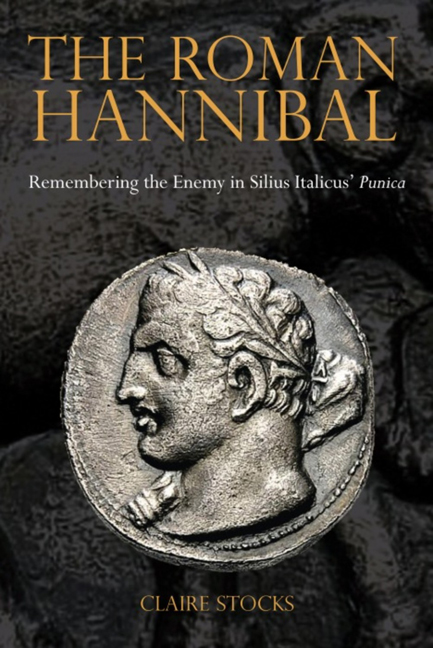
-
- This book is no longer available to purchase from Cambridge Core
- Publisher:
- Liverpool University Press
- Online publication date:
- May 2017
- Print publication year:
- 2014
- Online ISBN:
- 9781781385920
- Subjects:
- Ancient History, Classical Studies

Silius Italicus’ Punica, the longest surviving epic in Latin literature, has seen a resurgence of interest among scholars in recent years. A celebration of Rome’s triumph over Hannibal and Carthage during the second Punic war, Silius’ poem presents a plethora of familiar names to its readers: Fabius Maximus, Claudius Marcellus, Scipio Africanus and, of course, Rome’s ‘ultimate enemy’ – Hannibal.Where most recent scholarship on the Punica has focused its attention of the problematic portrayal of Scipio Africanus as a hero for Rome, this book shifts the focus to Carthage and offers a new reading of Hannibal’s place in Silius’ epic, and in Rome’s literary culture at large. Celebrated and demonised in equal measure, Hannibal became something of an anti-hero for Rome; a man who acquired mythic status, and was condemned by Rome’s authors for his supposed greed and cruelty, yet admired for his military acumen.For the first time this book provides a comprehensive overview of this multi-faceted Hannibal as he appears in the Punica and suggests that Silius’ portrayal of him can be read as the culmination to Rome’s centuries-long engagement with the Carthaginian in its literature. Through detailed consideration of internal focalisation, Silius’ Hannibal is revealed to be a man striving to create an eternal legacy, becoming the Hannibal whom a Roman, and a modern reader, would recognise. The works of Polybius, Livy, Virgil, and the post Virgilian epicists all have a bit-part in this book, which aims to show that Silius Italicus’ Punica is as much an example of how Rome remembered its past, as it is a text striving to join Rome’s epic canon.
'This book offers many stimulating discussions of the multi-faceted Punica and paves the way for monographs on some of the other figures of Silius' epic world (Fabius, Paulus, Marcellus).' -- Classical Journal
Anthony Augoustakis Source: Classical Journal
 Loading metrics...
Loading metrics...
* Views captured on Cambridge Core between #date#. This data will be updated every 24 hours.
Usage data cannot currently be displayed.